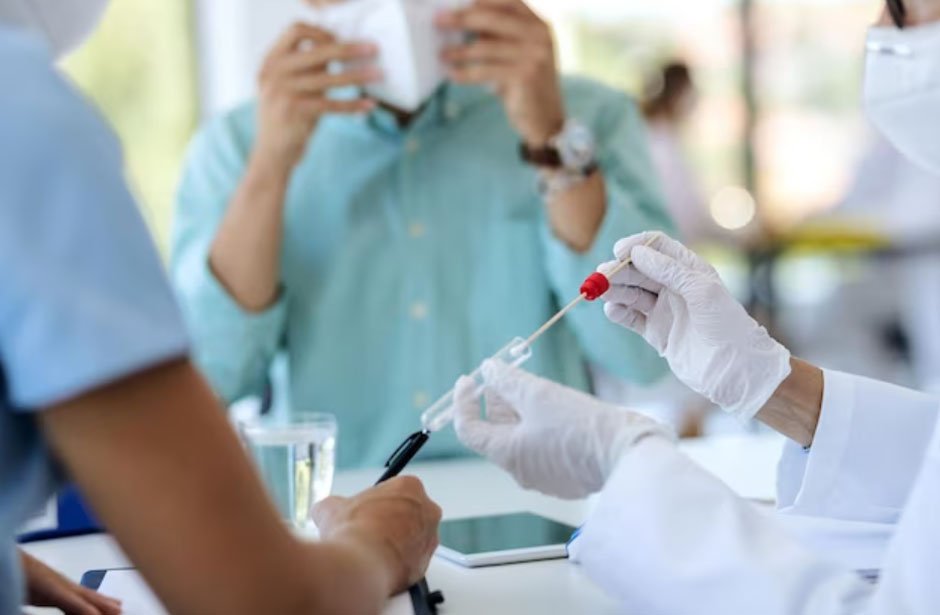Drug screening has become an increasingly common practice in various industries and settings, from pre-employment screening to random testing of employees. It’s a sensitive and controversial topic, with implications for individual rights, workplace safety, and legal compliance. Whether you’re an employer or an employee, understanding the procedures and your rights is crucial.
In this article, we’ll explore the different types of drug tests, when employers can conduct them, and the rights and protections employees have. We’ll also cover the potential consequences of a positive test, strategies for preparing for a drug test, and emerging trends in the field.
KEY TAKEAWAYS
- Drug testing methods like urine, blood, hair follicle, and saliva tests have varying advantages and limitations.
- Employers can conduct drug tests for pre-employment, random, and reasonable suspicion scenarios, while employees have the right to challenge results and seek accommodations.
- A positive drug test can lead to termination, impact future job prospects, and result in legal consequences, highlighting the importance of responsible preparation.
- Emerging trends include evolving marijuana policies, alternative testing methods like breathalyzers, and ethical concerns surrounding genetic testing for substance abuse predispositions.
Types of Drug Tests
Primarily, drug screening can take various forms, each with its strengths and limitations. The most common type is the urine test, which detects the presence of drugs or their metabolites in your urine sample. It’s a non-invasive method, but there are concerns about privacy during the collection process and the potential for tampering.
Blood tests are also used, particularly in situations where recent drug use needs to be detected, such as in the case of accidents or reasonable suspicion testing. While more invasive than urine tests, they provide a narrower detection window and are generally considered more accurate.
Hair follicle tests have a much longer detection window, typically up to 90 days, making them useful for identifying patterns of long-term drug use. However, they are more expensive and can be prone to false positives due to environmental contamination or variations in hair types. Saliva tests, on the other hand, are convenient and can be conducted on-site, but they have a shorter detection window and may be less accurate than other methods.
When Can Employers Conduct Drug Tests?
Employers have various scenarios where they can legally conduct drug tests. Pre-employment screening is a common practice, with job offers often contingent upon passing a drug test. However, there are specific legal considerations and consent requirements that employers must follow.
Random drug testing is mandatory in certain industries, such as transportation and construction, where safety is a critical concern. In these cases, employers must follow strict procedures and provide proper notification to employees. Reasonable suspicion testing is also permitted if there is evidence or observable behavior that suggests an employee may be under the influence of drugs or alcohol.
Employee Rights and Protections 
While employers have the right to maintain a drug-free workplace, employees also have certain rights and protections when it comes to drug testing. Privacy rights and consent requirements vary by state and industry, but generally, employees must be informed of the testing policies and procedures.
If an employee tests positive, they have the right to challenge the result and request a retest or independent analysis. False positives can occur due to various factors, and the consequences of a positive test can be severe, including termination or suspension.
Additionally, there are protections against discrimination and considerations for individuals with disabilities or those in recovery programs. Employers may need to provide accommodations or alternative duty options for employees who are legally prescribed medications or participating in rehabilitation programs.
Consequences of a Positive Test
The consequences of a positive drug test can be far-reaching and potentially devastating for an employee. Workplace policies and disciplinary actions vary, but termination or suspension is a common outcome, particularly in safety-sensitive industries.
A positive test can also impact future employment prospects, as background checks and job applications often inquire about drug test results. In some cases, a positive test can even lead to legal implications and criminal charges, depending on the substance involved and the state’s laws regarding possession and impairment.
Preparing for a Drug Test
If you know you’ll be subject to a drug test, it’s important to understand the detection windows and cutoff levels for various substances and testing methods. Factors like metabolism, hydration, and frequency of use can all influence how long drugs remain detectable in your system.
There are legal and ethical strategies for increasing your chances of passing a drug test, such as temporary abstinence and avoiding secondhand exposure. However, it’s important to seek legal counsel or medical advice if you have concerns about prescription medications or other legitimate reasons for potential positive results.
Some individuals may attempt to use detox methods or other products to try to “beat” a drug test, but these can be unreliable and potentially dangerous. It’s always best to be honest and upfront with employers and testing administrators.
Emerging Trends and Future Considerations
As attitudes towards certain substances, like marijuana, continue to evolve and legalization efforts progress, workplace drug testing policies may need to be updated accordingly. Impairment testing, rather than blanket substance testing, may become more common in some industries.
Alternative testing methods, such as breathalyzers and oral fluid tests, are also gaining traction and may offer advantages over traditional urine or blood tests. However, these methods also have their own limitations and accuracy concerns.
Genetic testing for predispositions to substance abuse or addiction is an emerging area that raises ethical concerns about discrimination and privacy. As technology continues to advance, it will be important to strike a balance between workplace safety and individual rights.
Closing Thoughts
Understanding the procedures, your rights, and the potential consequences is crucial for navigating this sensitive topic responsibly. By staying informed and encouraging open dialogue, we can work towards more fair and effective drug testing policies that prioritize safety while respecting individual privacy and civil liberties.



